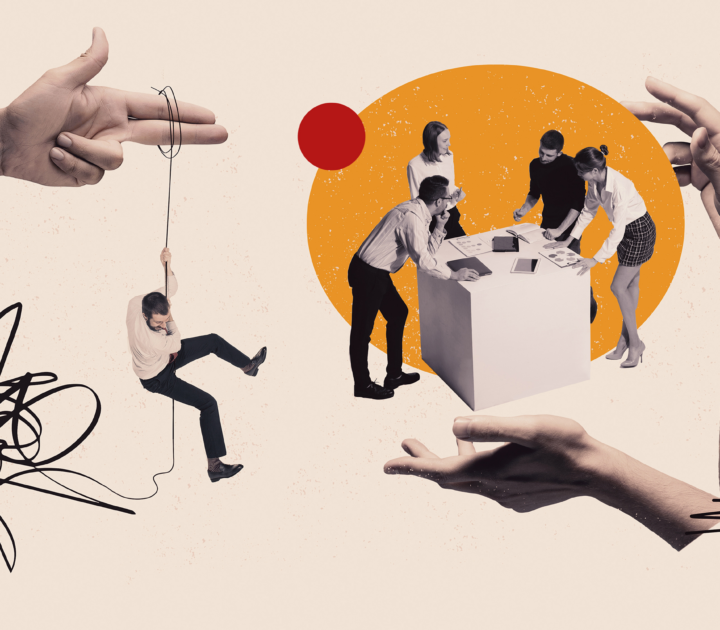Blockchain-related technologies are disrupting the current health and travel systems, said Arturo Bris, Professor of Finance at IMD, during a webinar on how governments can best deploy blockchain to mitigate the consequences of the pandemic.
“We need to convince everyone that technology is going to come to the rescue, but this technology needs to change,” he said, speaking on a panel alongside other industry experts.
It was convened by WiseKey, a leading global cybersecurity company deploying large-scale digital identity ecosystems for people and objects using Blockchain, AI and IoT.
What needs to change?
“If someone steals your digital identity, they steal your data, your money, your person,” he said, highlighting the fact that we don’t yet know how to protect our data. Indeed, we also have our work cut out trying to fathom how to make the most of it. But we do know that it’s immensely valuable.
Pascal Buchner, Director ITS & CIO at The International Air Transport Association (IATA) — a body that provides global standards for airline safety, security, efficiency and sustainability — explained how in the same way that cash evolved to contactless payment in two weeks, IATA wanted “to move to contactless travel to bring your own ID into the travel space and reduce all contact you have in your journey.”
Blockchain could dictate the future of travel if the world collectively made it happen.
Here is what you need to know about how the new travel normal could look:
Passenger safety on airlines will have a whole new meaning
Buchner said “[IATA’s] priority is to reinstall the confidence that authorities and passengers have in the safety of flights. Regulators and authorities have to be convinced they are not creating a risk for passengers.”
However, he was honest that there was no obvious panacea despite Blockchain’s potential: “[With COVID], 80% of our business stopped. The aviation system was never designed to be stopped and it happened in two weeks and nobody has any idea how to restart it.”
Cristina Dolan, an engineer and Cyber-BlockChain-IoT-Cloud-AI expert, said we were “more likely to transmit COVID running through the street with no mask on during a protest than on a plane” but that the public needed to feel reassured that was true.
Moderator and WiseKey’s Founder and CEO Carlos Creus Moreira, who spoke at IMD’s OWP event last year on how Internet users were giving away their consent for convenience, said COVID-19 had put a light to the match of those who had been working away on these processes anyway.
Referring to IATA’s efforts to redefine standards to fly safely, and in which Blockchain would play a key role, he lauded “an international organization looking into the topic — into the history, stakeholders and governments too — and handling such an important industry in times of crisis.”
“It’s a great time to get it done,” he said, “and for good.”
You could soon be travelling with a health passport formed by your digital ID
As individuals, we will have a unique digital ID that will identify us everywhere we go and link to our data. This ID, said Nolan, is “a legally binding document; the only technology that has legality in front of a court; the fax of times past.”
Geoffrey Lipman, former Assistant Secretary General of the World Tourism Organization, and Co-Founder at the SUNx Program, said that “when climate change begins to bite, we might have several pandemics occurring at same time.” He continued:
“The virus loves travel. On the one hand the industry wants to restart and, on the other, realists understand we have to do so in a way that is safe and secure.”
And so it is that the need to show you don’t have COVID-19 in order to fly has fast-tracked the concept of a digital health passport from concept to tangible reality. Passengers will be able to upload their passport and their data will be stored on their phone.
If you need a medical certificate, you will use this centralized identity too. We will refer to everything being “in the Blockchain”. There will be fewer queues at the gate which will also reduce the risk of contamination.
Professor Bris said: “In the future, our health status is going to be more important than our nationality.”
However, we still lack the health data we need, said Don Tapscott, CEO of The Tapscott Group, a global authority on the impact of technology on business and society. The ultimate goal, he said, is real-time health data that represents the entire population; an early warning system that can stop a virus in its tracks.
A new app is about to be launched to link up blockchain-related steps for travel
An app is being created for travelers by Moreira and Lipman called “Wise Travel”. Designed to be an aggregator — not integrating other Apps — it will be a secure place for multiple Blockchain siloes.
It has a secure wallet for all the information you would need in a trip. Launching in Q4 2020, it takes compliance heavily into account, providing information that can be trusted to be given to others.
Blockchain eliminates the need for the trust that is currently sought in intermediaries; you can automate things and make it harder to tamper with. But the fact remains that the origin of data input needs to be highly scrutinized.
Professor Bris declared that experts in the field are ready for the disruption but questioned whether the rest of the world was.
“We need to be missionaries of such a disruption,” he said. “This time, we are not merely building upon previous technologies.” And that, he insisted, requires mental adjustment.
You can watch the webinar here.






